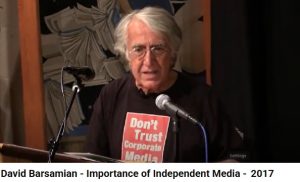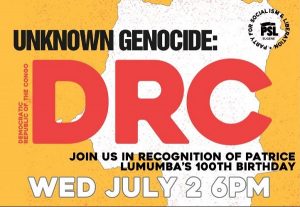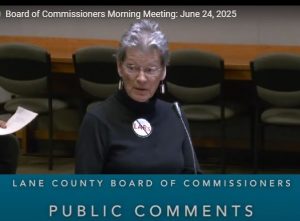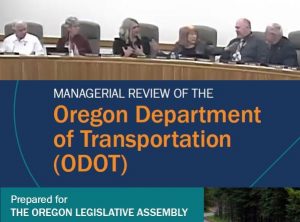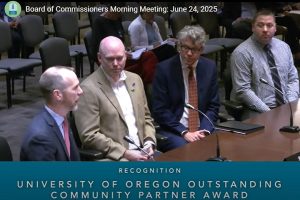Kevin, Youth Radio Project suggest: Let’s talk
5 min read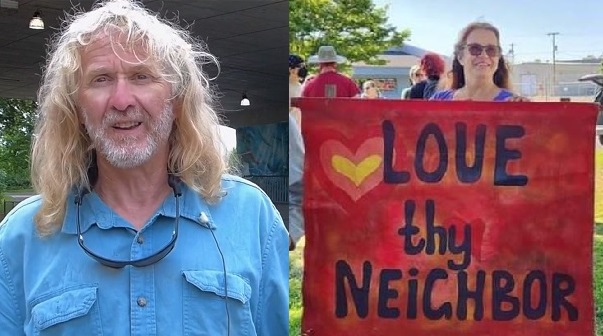
From the Youth Radio Project, Zinnia recommended support groups, with people helping each other with whatever they’re facing.
Zinnia (Youth Radio Project): My name is Zinnia. I go downtown a lot, and I’m always nice to the homeless people who talk to me, and I treat them like they’re human beings, and if I have a dollar to spare, I’ll give it. Because I don’t want to think that they’ll do the worst with it and that’s not really my call to make. But they are humans and they don’t deserve to be treated like they’re waste.
[00:00:35] I’ve seen a lot of homeless children. In fact, there are 2.5 million children that are homeless annually in the U.S., and one in five former foster care youth will experience homelessness.
[00:00:53] I think we could really help the homeless community by giving them access to support groups where they could just talk to each other and kind of help each other through what’s going on. Especially after COVID, a lot of homeless shelters got shut down and people didn’t have a place to sleep. People are kicked out commonly.
[00:01:16] It’s a very big issue that can’t just be solved by one thing, but it can definitely, there can be more work put into it.
[00:01:27] John Q: While volunteering with the Breakfast Brigade, and sharing the message of ‘Love your neighbor,’ David Hazen spoke with Kevin.
[00:01:34] Kevin: I’m a handyman, I do whatever people are willing to pay me to do: Pull weeds, I can build stuff, you know, whatever they need, I do. I work for them.
Not all of them know, but the ones I’ve worked for pretty steady and know, they know that I’m homeless. And it doesn’t make a difference, because of what I do and how I represent myself, you know. So that’s why I don’t really consider it homeless.
[00:01:56] I mean, cause, if I really put my foot down, I could go and get a place, rent it, have the money, but it’s expensive. And I don’t really have a respect for money. So I go and if I’ve got money, I help people out. If they need it, I’m there for them.
[00:02:10] And I’m trying to set some examples and I let people know: ‘Look what I can do. I’m in the same boat as you. You can work, you can do this stuff, and get your community and help each other.’
[00:02:19] Sometimes it’s tough. Sometimes I get frustrated, sometimes I’m just in a chaos. You know, like this morning, cause of things just not going right. I’m like everybody else, I just try to keep that positive attitude, no matter what, but it’s hard.
[00:02:32] But I’ve got people I talk to, and I let them know how I’m feeling. And it’s infectious. So they’re taking care of each other, you’re looking out, and if you’re down, they try to give you a cheer up.
[00:02:41] The other day, I’m so busy all the time, and my friend tricked me and got me to sit down and relax and chill, and she did it on purpose because she knows that I get like that, and she did that, and then my day went better.
[00:02:52] And then I thanked her so much for it, and she just laughed and she said, ‘Yeah, you know, people need people,’ you know, and I’ll get, especially when it’s tough, I do crash and have my bad days. But I have people set up that I can talk to, that I can vent, you know, and people need to do that. People need to have people that they can talk to, and if they’re having a bad day. And most of the time, that’s all that people need: Ask them how they’re doing. Hey, how are you doing today? And then I might ask again, because they don’t always right off the bat say something, you know?
[00:03:21] But I actually have good instincts and I can tell. A lot of times I show up ahead of time and knowing already that there’s something wrong, because I pay attention to my friends, and you start getting a rapport. To be out here and get to know people, you need to be out and about in them, and get to know them, and then they get some trust, and then they will talk to you, and you don’t try to make them into something, you just try to be, you know what I mean?
[00:03:43] What I would suggest is that, as a community, is to get out and talk to them. And not try to change them, just go out and stop and have a conversation. And then maybe take a walk again and have another conversation and get to know that person. And get to know a few of them and walk around and say hello.
[00:03:58] And then pretty soon, you do that for a while, and you come and see that person, and you stop and say hello, you’re starting to build something. And you can change his life, and it’s going to change yours. And they’ll be blessed because they’re out walking around, they’re out getting to know their community, and they’re actually out there helping somebody without really realizing it.
[00:04:15] And it comes around. That comes back to you. They’ll feel something different inside themselves. Especially if they do it right, because that’s all it is. And, I tell you, if the community people got more community-involved like that, you’d have less homeless.
[00:04:29] John Q : Kevin speaks with David Hazen, sharing the message that people need people. Say hello, as recommended by Zinnia of the Youth Radio Project.
One nonprofit has revised its previous estimate and now estimates the number of homeless children and youth at between 7.2 million and 8.2 million.
For more videos by David Hazen, see his YouTube playlists Those Who Love, Nobody Stands Alone, and Who Is My Neighbor.
